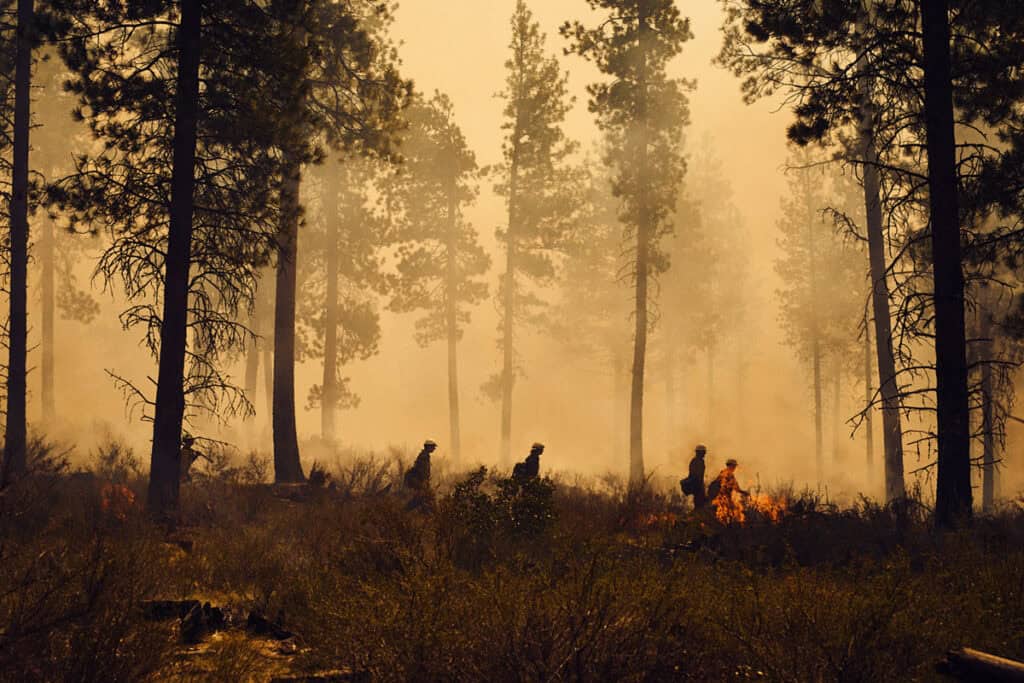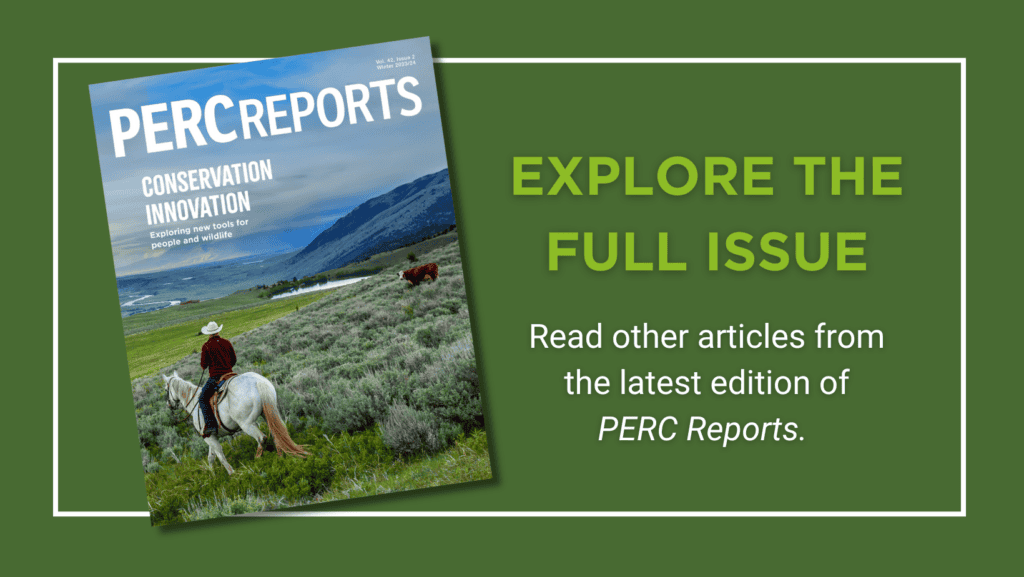
This special issue of PERC Reports features several pilot projects from PERC’s Conservation Innovation Lab. Read the full issue.
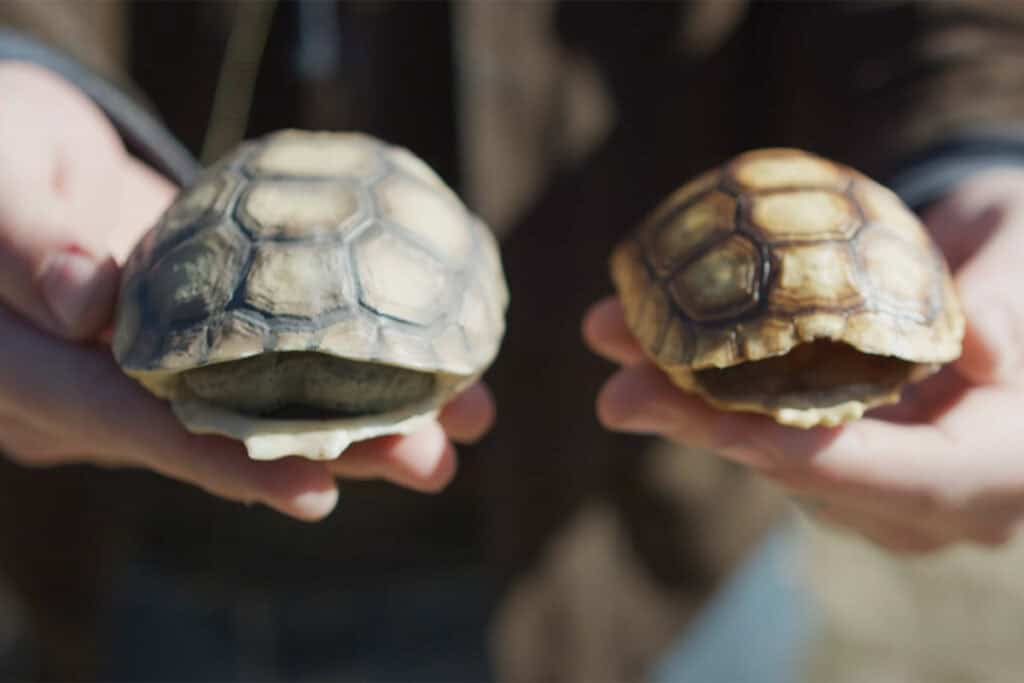
The high-tech war to save tortoises
In California’s Mojave Desert, a robotic tortoise appears to be outsmarting one of the smartest creatures in the animal kingdom. Beckoned by new housing developments, invasive ravens are feasting on young desert tortoises, decimating their numbers. To help the juveniles regrow their ranks, a new enterprise called Hardshell Labs has developed the “Techno-Tort,” a lifesize replica of a young tortoise. After luring the birds in for a feast, the booby-trapped decoys aggressively spray an artificial grape flavoring agent the ravens despise. Early results suggest the intelligent birds are getting the message, with a 46 percent reduction in attacks.
Eureka! Conservationists strike gold
Faced with the looming threat of a gold mine claim upstream from the Yellowstone River at the footsteps of Yellowstone National Park, a local nonprofit took matters into its own hands. The Greater Yellowstone Coalition raised $6.25 million and successfully purchased the mining rights through a strategic buyout. Nearly 1,300 donors from 47 states and seven countries contributed to the campaign, protecting nearly 1,600 acres of watershed and wildlife habitat adjacent to the park. By employing a market approach, the grassroots effort demonstrates that wildlife habitat can indeed be more valuable than gold.
Photo courtesy of William Campbell

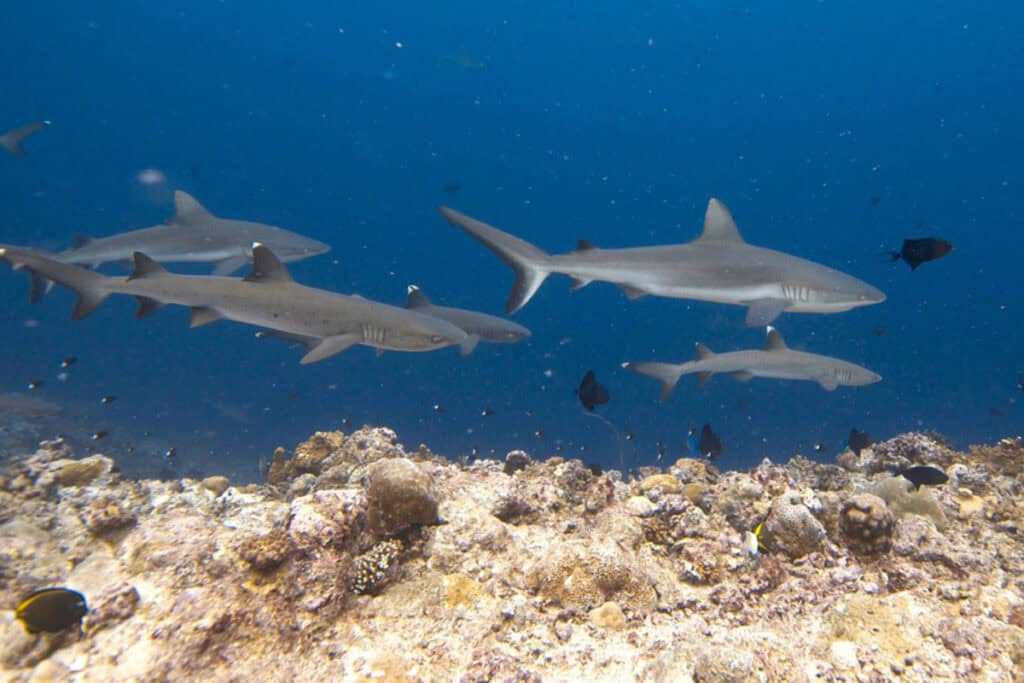
Off the hook
A new study suggests paying people not to catch sharks and rays could be a cost-effective way to conserve vulnerable species. Published in the journal Biological Conservation, researchers found that up to 18,500 hammerheads and more than 2,000 wedgefish could be protected in Indonesia through collective payments totaling $71,000 to $236,000 per year. According to the authors, funding could come from levies on dive tourism. A pilot project in two Indonesian fishing villages has seen more than 150 sharks and rays released in just eight months.
Photo courtesy of Michael Musashi
Wisconsin’s water win
Wisconsin might be known as America’s dairyland, but a new private marketplace puts focus on the quality of the state’s water in addition to its milk and cheese. Farmers and industries can earn credits by planting practices that reduce water pollution, such as installing buffer strips or implementing cover crops. These credits can be sold to entities exceeding pollution limits, creating a market-driven incentive for environmental stewardship. The program’s aim is to improve water quality by encouraging a voluntary exchange, fostering collaboration among diverse stakeholders while enhancing the health of the state’s rivers, lakes, and streams.

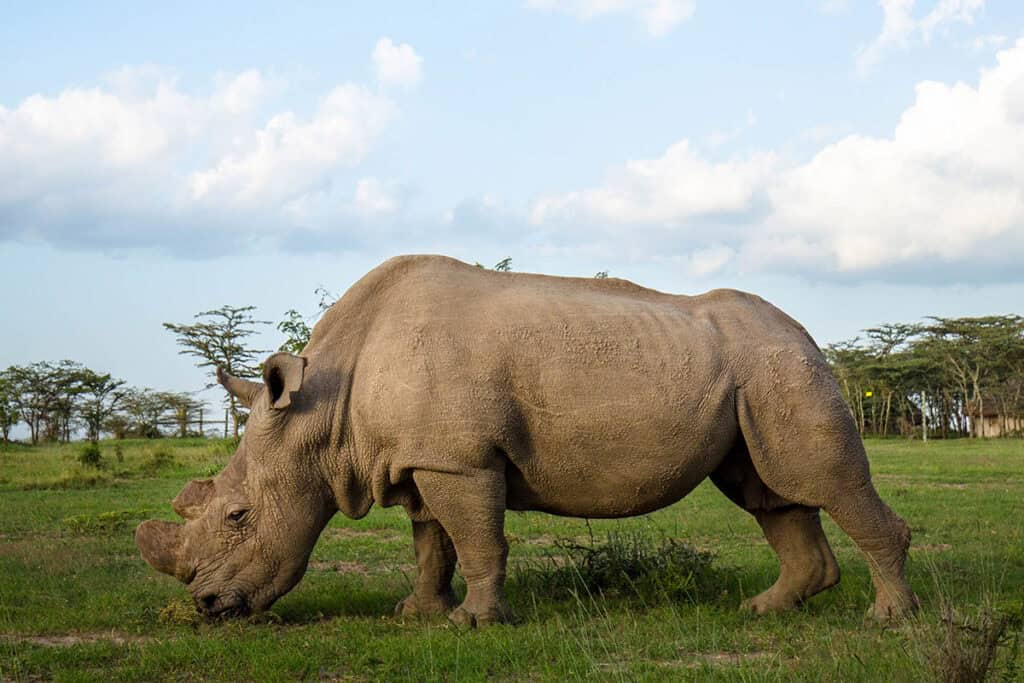
Buying rhinos to save them
The conservation nonprofit African Parks is purchasing about 2,000 white rhinos with a goal to release them into the wild. The sale is part of a private deal to buy the world’s largest rhino farm, which recently put all of its rhinos up for auction. African Parks manages 22 national parks across the continent. Navigating the complicated logistics for a successful release would be meaningful as the captive animals represent a significant portion of the world’s population, with just 22,000 rhinos living across all of Africa.
AI tackles the wildfire crisis
Firefighters now have a new tool in the battle against megafires: artificial intelligence. Tech start-up Pano AI detects, assesses, and pinpoints wildfires, quickly enabling crews to stop them before they get out of control. Installed on towers high atop forest landscapes, 360-degree ultra-high-definition cameras can spot a wildfire within a 15-mile radius. The platform also analyzes vegetation density and historical fire patterns to identify areas prone to wildfires before they break out.
